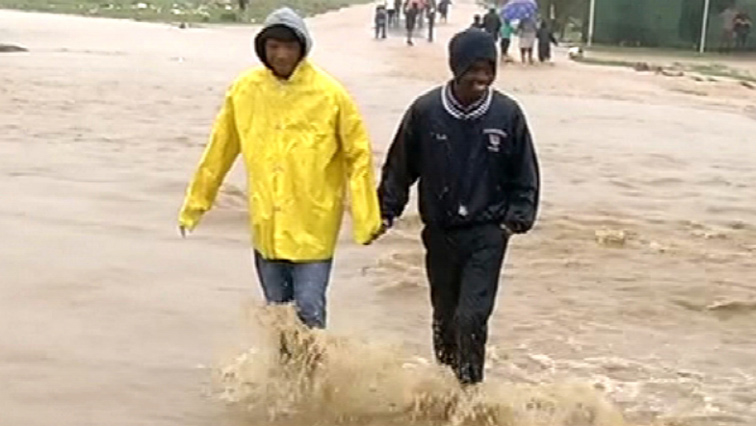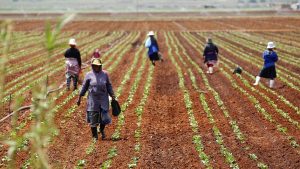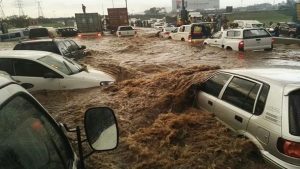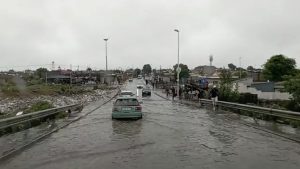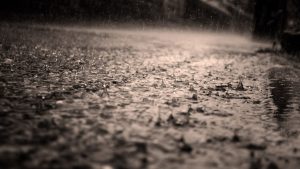The Mangaung Metro has warned residents to be cautious on the roads following a severe weather warning by the South African Weather Services.
Residents can expect localised flash flooding from Wednesday until Friday.
Severe weather conditions are also likely to cause network and power cuts.
“We have the Eloise sitting over south-western Botswana and over Gordonia area. So, by tomorrow the system that is approaching from the west and upper trough will connect with the system that is over Botswana and Gordonia. So, it drifts the moisture southwards to the central provinces of the country. So, those conditions meaning the heavy rains, as well as possibility of flooding could also be expected on Friday,” says Puseletso Mofokeng, Forecaster.
Heavy rains in northern KwaZulu-Natal earlier this week, have added to the plight of vulnerable communities. 57-year-old Maria Ndlovu from Mtubatuba lives with her six family members in a one-roomed mud, stick and stone structure on the outskirts of the rural town.
She is one of the affected families who is receiving aid from her local municipality.
⚠️ Media Release: Disruptive Rainfall expected over the central interior this week. pic.twitter.com/ewRD7DwR6T
— SA Weather Service (@SAWeatherServic) January 26, 2021
Ndlovu says she even dug trenches in front of her home to divert the gushing streams of water.
“When it started, her roof started blowing because her structure is unstable. So, when the structure started moving, she then moved her kids and grandkids to the other room. The wind was strong. The rocks started falling on her. That’s when she started moving around, digging in the yard so the water could move in one direction. So, when it all started coming down she then became hopeless,” says Ndlovu.
In Limpopo, houses were destroyed, roads damaged and bridges collapsed. In the Blouberg area, one house was destroyed, while in Musina seven houses were destroyed.
Limpopo Co-operative Governance, Human Settlements and Traditional Affairs MEC, Basikopo Makamu, says, “We received the report (that) about 78 families have been displaced due to the collapse of the houses or the houses have been flooded with water and mainly these are in Vhembe District. The biggest number is in Makhado Local Municipality, the area of Tshakuma. But also, there are a number of few houses – about three houses in Thulamela Municipality, which also have one house collapsed. The roof was taken away and the intervention was done,” says Makamu.
⚠️Yellow level 4 Warning for Disruptive Rain is expected over the western half of the North West, Western and Central parts of the Free State, north-eastern parts of the Northern Cape and the eastern interior of the Eastern Cape tomorrow (Wednesday, 27 January 2021).
— SA Weather Service (@SAWeatherServic) January 26, 2021
In KwaZulu-Natal, areas affected include uMkhanyakude and districts in Zululand.
“Under uMkhanyakude District, 280 households have been affected through the storm and 916 people coming from those households have been affected and we indicated that we have 175 houses that have been completely destroyed by the storm and there are a number of roads and bridges that have been also affected,” says Sipho Hlomuka, Cooperative Governance and Traditional Affairs MEC.
In Mpumalanga, the affected areas are Mbombela and particularly, Bushbuckridge.
“Starting with the city of Mbombela, we had five houses that were structurally damaged, partially, not totally. But it is in Bushbuckridge that we have experienced a large number of houses and also families that were actually left displaced and had to be accommodated somehow with temporary shelter. That’s about sixty houses in Bushbuckridge, especially in the area called Mkhuhlu,” says Sam Ngubane, Co-operative Governance Acting Head of Department.
Free State Tomorrow ‘s Weather overview: 27.1.2021 pic.twitter.com/JJILxVBnQ2
— SA Weather Service (@SAWeatherServic) January 26, 2021
Meanwhile, government can’t at this stage confirm the budget allocation as the disaster response is a multi sectoral plan comprising different provinces and municipalities.
However, Dr Mphaka Tau of the National Disaster Centre urges South Africans to be on high alert.
“People living in low-lying areas must take special care during storms as sudden floods might affect them. So, take special care to ensure that you don’t just cross rivers without checking whether the water could be of the volume that could endanger yourself. Secondly, do not cross through flooded roads or bridges. Use other roads. Even if it means taking a long route, it’s better that you delay a little bit than to risk your life,” says Tau.
South Africa has not declared any of the areas a disaster area because it has adequate capacity and resources to respond to the needs of affected communities.


